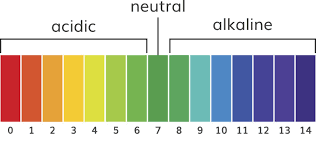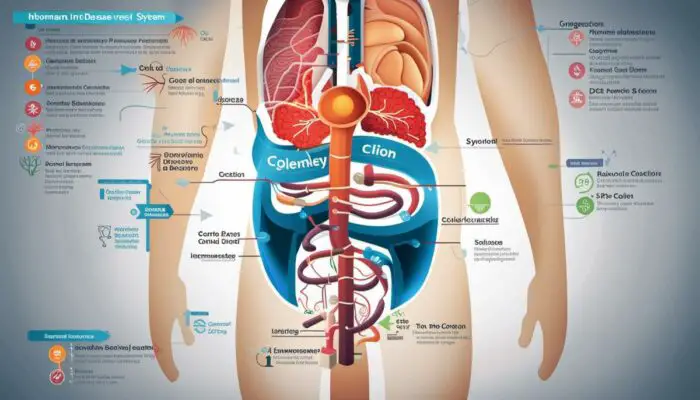Are you wondering about How To Accurately Test for Low Stomach Acid? Well, Stomach Acidity whether it’s too high or too low is something that significantly dictates the efficiency of our overall digestive system. High stomach acid is seemingly the more common condition BUT really in actual fact it is really not!
This article offers an in-depth understanding of the importance of stomach acidity, particularly Hydrochloric Acid (HCL), in facilitating digestion processes. This exploration further unveils the symptoms and possible causes of Low Stomach Acid (Hypochlorhydria) steering attention towards different lifestyle choices, diets, and medical conditions that might result in this condition.
As the discussion progresses, we will delve into various methods available to accurately gauge stomach acid levels, from medical examinations such as the Heidelberg and Gastrin Level tests to simple at-home procedures like the baking soda test.
Concluding the article, a cornucopia of treatment options and lifestyle adaptations have been addressed for How To Accurately Test for Low Stomach Acid and for managing Hypochlorhydria effectively.
How To Accurately Test for Low Stomach Acid

A healthy pH balance, or acidity level, for stomach acid typically falls between 1.5 and 3.5. An Important thing here is to measure what this level is for you. If you experience symptoms indicative of Low Stomach Acid, several tests are available to confirm or rule out this condition.
A Gastroenterologist may guide you through these processes. Such as an Endoscopy a test often used which involves swallowing a flexible tube with a camera on the end, to visually inspect your stomach lining.
This test also allows for biopsy and pH measurements if needed.
Another option is a the Heidelberg Stomach Acid Test. Here, a swallowed capsule measures the stomach acid and pH levels and transmits the data to a computer for analysis.
Although, understandably neither is straightforward. You must book an appointment etc. and a lot of people will know how long waiting times are. Yet, this is something that really should not be left to fester for too long. Why more simple DIY home tests such as the baking soda test are worth doing.
I shall circle back to these tests shortly but before taking here is something you might want to know.
Why Adequate Stomach Acid Is Important
Stomach acid is vital for this part of the digestive process as certain enzymes, including pepsin, perform optimally in these acidic conditions. Pepsin, specifically, aids in the digestion of proteins, breaking them down into smaller particles that can be absorbed more easily.
However, imbalances in stomach acidity can lead to health problems. Notably, Hypochlorhydria, or low stomach acid, can emerge as a concerning issue. When your stomach acid reduces below the healthy range, it can result in inefficient digestion, leading to suboptimal nutrient absorption.
Spotting Hypochlorhydria
Hypochlorhydria can manifest in various ways, producing a range of symptoms. Common symptoms include Indigestion, Heartburn, and Bloating, which are typically felt after eating.
Other symptoms can include Nausea or Stomach Ppset, a feeling of Incomplete Evacuation after Bowel Movements, and deficiencies in key vitamins and minerals such as Vitamin B12, Iron, and Calcium.
More severe symptoms, arising usually from chronic or long-term low stomach acid conditions, might include;
- Hair Loss,
- Finger and Toenail Brittleness, and
- Weak Muscles due to insufficient protein digestion and absorption.
- In some cases, Chronic Diarrhoea or Constipation,
- and frequent Unexplained Vomiting, might occur.
Swift Diagnosis and Effective Management

Considering the implications of Low Stomach Acid on the absorption of nutrients and subsequent potential digestive problems, a swift diagnosis and effective management strategy are of utmost importance.
This early diagnosis and action will ensure efficient control over the ailment and will prevent any long-lasting health issues. Typically, treatment involves altering dietary habits and lifestyle, supplemented by specific medical intervention if necessary.
Understanding Stomach Acidity
Stomach Acidity, medically termed gastric acidity, is crucial for effective digestion. It is primarily composed of Hydrochloric Acid (HCL), a strong acid produced by the cells lining your stomach.
This gastric acid plays a pivotal role in several important functions, including breaking down food for digestion, enabling the absorption of nutrients, and killing harmful bacteria that enter your stomach with food.
Potential Causes of Low Stomach Acid
It’s essential to understand that low stomach acid, medically referred to as Hypochlorhydria, can be the result of various factors. These range from choices related to lifestyle to certain medical conditions.
Some examples Include;
1# – Eating Habits
Highly processed foods and sugar-rich diets can lead to reduced stomach acid levels by disturbing the equilibrium of good and bad bacteria in the gut. An inadequate intake of essential nutrients, specifically minerals like zinc which are crucial for acid production, can be another cause for low stomach acid.
2# – Excessive Alcohol Consumption
Excessive alcohol consumption can damage the stomach lining and impair the stomach’s ability to produce acid. Alcohol like gluten and casein is a difficult thing to metabolize and this can deplete HCL in the stomach.
3# – Chronic Stress
Chronic stress can cause a reduction in stomach acid as the body diverts resources away from digestive processes during times of stress.
4# – Autoimmune Disorders and H. pylori Infections
People with autoimmune disorders such as pernicious (B12 Deficiency) anaemia are more susceptible to low stomach acid. H. pylori infections can also interfere with acid production.
5# – Ageing
The ageing process can reduce stomach acid production, especially in adults over the age of 50.
6# – Medications
Proton pump inhibitor (PPI) medications, commonly used to treat acid reflux, can reduce stomach acid levels. Long-term or excessive use of these medications can lead to chronically low levels of stomach acid.
Symptoms and Diagnosis
It’s crucial to remember that symptoms of Low Stomach Acid can be similar to those of high acid, such as heartburn, indigestion, or bloating. Anyone experiencing persistent digestive issues should seek medical advice for accurate diagnosis and treatment.
Tests like the Heidelberg test, endoscopy, or a serum gastrin test can assess stomach acid levels and guide appropriate treatment.
Seeking Treatment
In determining the appropriate course of treatment for Low Stomach Acid, it is crucial to identify the underlying cause. By attaining a balance in stomach acid levels, digestive processes can be significantly improved as well as overall health.
The Main Ways to Test for Low Stomach Acid
The Heidelberg Test for Gauging Stomach Acid Levels
An effective method to measure the presence of stomach acid within the gastrointestinal system is via the Heidelberg test. This involves the patient ingesting a small electronic capsule similar in size to a standard vitamin tablet. This capsule gauges acidity levels, or pH levels, within the stomach and transmits this data to an external device over a course of time.
Although deemed the gold standard for its accuracy, it is worth considering that this test might be somewhat financially challenging for some individuals and is NOT always available for everyone.
Gastrin Level Test
A gastrin test measures the amount of the hormone gastrin present in the blood. High levels of Gastrin can cause the stomach to produce too much acid, while low levels may signal that the stomach is not producing enough acid or is unable to respond to Gastrin Stimulation.
This test involves taking a blood sample, which is then sent to a laboratory for analysis. This test is not as direct or accurate as the Heidelberg test for evaluating stomach acid levels, but it can help determine if low stomach acid is a potential issue, especially in cases of suspected gastric outlet obstruction or Zollinger-Ellison syndrome.
The Baking Soda (Sodium Bicarbonate) Test
One simple, at-home method of testing for Low Stomach Acid is the baking soda test. This involves dissolving a teaspoon of baking soda in water, drinking it, and then timing how long it takes for you to burp.
The chemical reaction between Baking Soda and your stomach acid should produce gas, causing you to burp. If it takes more than five minutes for you to burp, or you don’t burp at all, this could indicate Low Stomach Acid. This test is inexpensive and easy to perform, but its results should not be taken as conclusive.
It is more of an indication that further investigation may be necessary.
Considerations for Evaluating Testing Methods
Determining which testing method is best for you will mainly depend on three factors: accessibility, cost, and accuracy. Medical tests such as the Heidelberg test and gastrin level test are believed to be more accurate, but they may not be as accessible due to cost or availability.
Meanwhile, the baking soda test is easy to conduct at home and is cost-effective, but it lacks the accuracy of clinical tests and should not be used as a definitive diagnosis.
As with all potential health issues, consulting with a healthcare professional should always be your first step. They can provide the necessary guidance and, if low stomach acid (Hypochlorhydria), is suspected, they can refer you to the relevant tests.
*Something else to try in my view are HCL Supplements. Even if you don’t know whether what your experiencing is high or low stomach acid with the latter being somewhat of an unrecognised cause taking one of these supplements you can try rather than paying for a test to see if it helps resolve your stomach acid issues. (See My Recommendation HERE)
Treatment Options and Lifestyle Changes
Besides taking a test to find out if you have Low Stomach Acid you could look to trying to find a remedy Instead. HCL Supplements I mentioned above but other options that might be considered are…
1#.) Over-the-Counter Medications
Several over-the-counter (OTC) medications can treat Hypochlorhydria by temporarily raising the acidity levels in your stomach. Antacids like Calcium Carbonate or Magnesium Hydroxide can recalibrate your stomach’s pH level, easing symptoms related to Low Stomach Acid such as Heartburn and Indigestion. You might also use H2 blockers, which curtail the production of histamine, an acid-stimulating substance.
2#.) Prescribed Medicines
If over-the-counter (OTC) medications are ineffective, a healthcare professional may prescribe stronger medicines. Prescription medications such as proton pump inhibitors (PPIs), are often used for this condition.
PPIs such as Omeprazole work by reducing the amount of acid produced in the stomach, which should relieve symptoms. However, long-term use may have some side effects, including the risk of vitamin B12 deficiency and increased susceptibility to certain infections.
Also, another medication, termed prokinetics, may be prescribed as they hasten the emptying of the stomach, decrease reflux, and help with dyspepsia symptoms.
3#.) Surgical Treatments
In extreme cases of chronic Low Stomach Acid, medical intervention may involve surgery. Surgical procedures for Low Stomach Acid are rare and employed as a last resort, mostly in people who suffer from severe Gastroesophageal Reflux Disease (GERD) that does not respond to less invasive treatments.
4#.) Dietary Changes
Diet plays a crucial role in managing low stomach acid. Consumption of protein-rich foods is often recommended as protein stimulates stomach acid production. Eating smaller, more frequent meals, and ensuring proper chewing of food can also help.
Certain foods have been shown to naturally enhance stomach acid levels such as apple cider vinegar, fermented vegetables, ginger, and healthy fats like avocado and coconut oil.
5#.) Lifestyle Habits
Lifestyle changes can significantly help manage Hypochlorhydria. One beneficial practice is eating slowly, which helps better digest food and prevent overeating. Regular exercise can also enhance digestion, as physical activity stimulates the smooth muscles in the digestive tract.
But, also Reducing Stress is key, as stress signals inhibit digestion and can decrease stomach acid production. Habits such as smoking and drinking heavily should be avoided, as they negatively impact stomach acid levels.
Just Remember…
It’s essential to consult a healthcare provider before initiating any new treatment or to change your lifestyle drastically, as each person and condition may warrant a different approach. Specialists, such as a gastroenterologist, are best equipped to assess, diagnose, and treat any stomach-related conditions.
In Conclusion
Understanding and Managing Stomach Acidity, deemed a silent bedrock of our health, pays dividends. The correlation between balanced stomach acid levels and overall health is profound, underscoring the importance of consciously addressing this often overlooked aspect of wellbeing.
Recognising the symptoms and causes of Low Stomach Acidity is only the initial stride towards managing this complex health condition. Knowing How To Test for Hypochlorhydria, the tools and the methods available, empowers us to make informed decisions about our health.
Finally, a well-informed selection from the numerous treatment options, alongside adopting healthy lifestyle habits, promises us a resilient defence against this potential health threat.
Herein lies the key to optimising our digestive health and, hence, our overall well-being.
I shall finish this article up here but if you would like to read more check out our other articles HERE<<






Anxiety and Depression BiOptimizers blood pressure supplements blood sugar control blood sugar support supplements cognitive function digestive enzymes Digestive Enzymes Supplement digital products Dr Sam Robbins Gut Health Gut Health While Travelling Health Tips for Travelling Healthy Living heart health HFL how to lower blood sugar levels How To Lower Cholesterol insulin resistance joint health supplement Keto keto dieting Keto Diet Weight Loss leaky gut supplements leptin resistance Magnesium deficiency Matt Gallant mental health multivitamins Nootopia Nootropics Probiotics Probiotic Supplements reverse type 2 diabetes stress and anxiety stress relief Supplements vitabalance vitapost Wade Lightheart weight loss articles weight loss diet plans weight loss product reviews weight loss supplements weight loss tea



Your dedication to your niche is evident.
Thank you